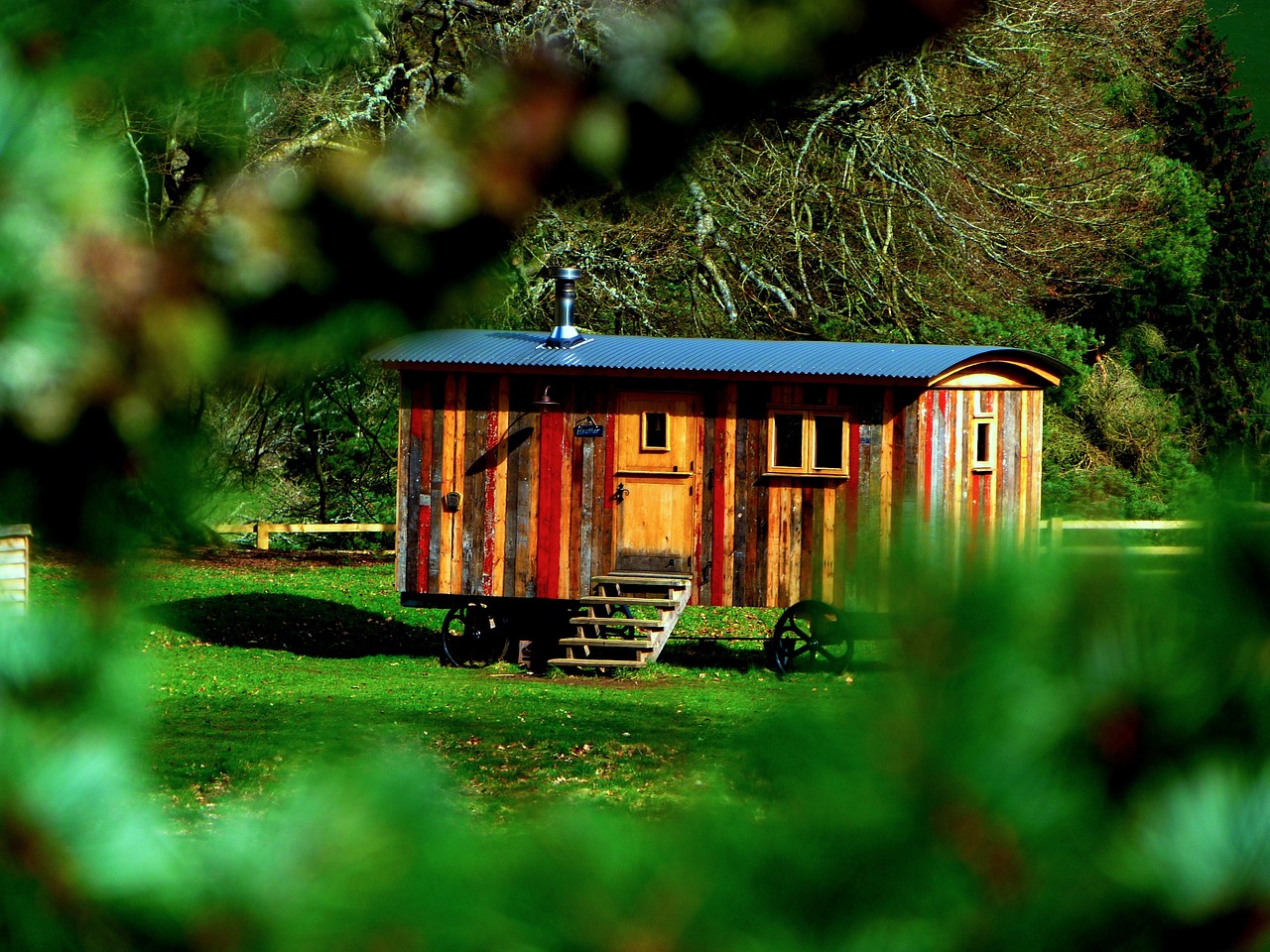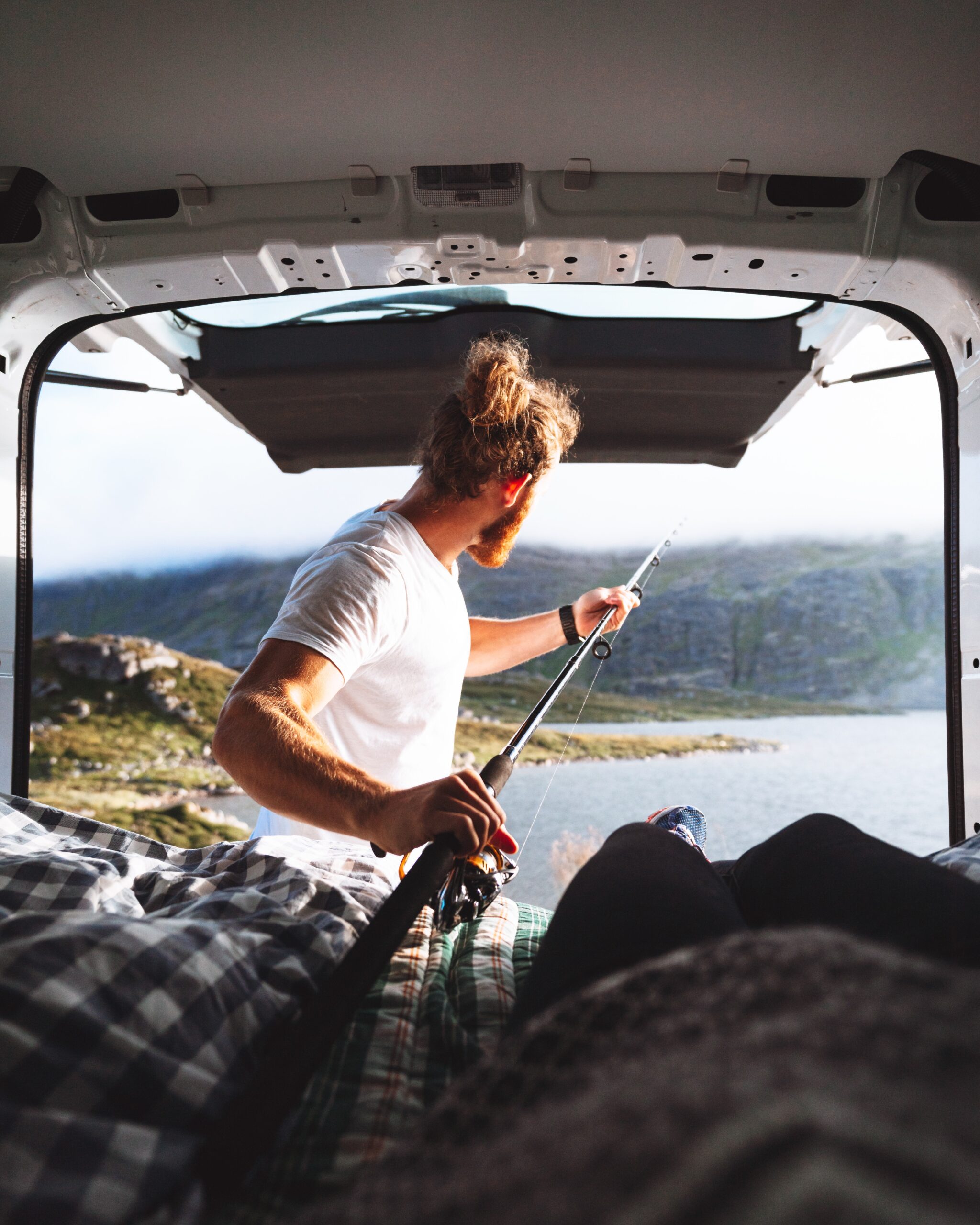At the time of this writing, housing costs have exploded across the United States. While an economic downturn similar to what we saw in 2008 may bring down rents and home prices to something affordable for the average person, it will come at the cost of many people’s jobs. So the house you want may drop in price by half, but if you have no income, you’ll still have no house.
And the housing prices may not come down in every location equally. Certain parts of the country (e.g. Florida, anything outside a city) are more popular right now than other places (e.g. California, NYC), so the place where you live (or want to live) may not see a significant decrease in prices. In fact, prices may continue to rise in low-cost areas as people flee high-cost, high-crime areas and use their larger incomes and house profits to out-bid the locals.
So what do you do if you find yourself unable to afford a home or even rent—either because costs are too high, you have too much debt and other bills to pay, or you have a reduced income due to disability, pay cuts, or unemployment? Well, you can either live with family or you can think outside the box and pursue alternative housing.
Why Alternative Housing?
![]()
Why would you want to choose alternative housing if you have family you can live with instead? Well, for starters, it’s possible to wear out your welcome, even with family. And then what will you do? Better to save living with family as a short-term, emergency option for when you really do have nowhere else to go. You don’t want to burn through their goodwill early in your life so that they will not be inclined to help you later on when you really do have an emergency and need them.
But mostly it’s better for you if you live independently of your family. And that’s especially true if you’re looking at living with your parents. Even with an older sibling, you will at least be on par with them; they are a peer. But your parents will always be your parents and there will always be a hierarchy there. And whether you are babied or dominated, neither is healthy for you in the long run. It’s very important for adults to have their own household, no matter how small, where they are in charge. Or, as the Goodman of Paris stated in 1389, “No man, no matter how humble his condition, will not be master in his own house.” When you don’t own the house, you’re not the master, and conflict will inevitably arise. It may manifest as something seemingly unrelated, but it will all come back to you trying to be master of your own space (and life) and your parents retaining their role of master of the house (and your life).
Even if you have to live on your parent’s property in a separate structure, this is much, much better than living in the same house. Your parents will have their territory and you will have yours. There may still be some conflicts over things like keeping the exterior of your place tidy, the responsibility of mowing the lawn, sharing utility costs, but overall, the experience will be much better for both parties as there will be better-defined boundaries.
What Is Alternative Housing?
“Alternative housing” isn’t a defined or commonly-used term; I’m just using it to denote something other than a typical living situation that most people will consider when trying to find a place to live. Traditional living arrangements include:
- A typical house, condo, single- or double-wide mobile home, etc. which you own (with or without a mortgage)
- A rented house, apartment, condo, etc.
- A room in a house you share with roommates
- A room in a family member or friend’s house (usually a temporary situation)
- A motel room or short-term stay suite (temporary)
![]()
So alternative housing is everything but these things, such as living in:
- An RV, camper trailer, bus, camper van, or car;
- A tiny house (on your own land, on rented land, in a trailer/tiny house park or campground, or on a family member or friend’s land);
- A handmade house of logs or non-traditional materials, like sandbags, straw, pallets, tires, shipping containers, recycled materials, etc., or an unusual structure converted into a house;
- A boat, barge, or floating platform on some body of water;
- A camping-type shelter, hut, dugout, tree-house, tee-pee, or yurt;
- Employer-provided housing;
- Another country;
- A completely off-grid house;
A box(We are not going to be contemplating the box because the whole point of this blog is to keep your standard of living from degrading to the point you’re sleeping in box)

The thing that alternative housing has in common, besides being something most people don’t contemplate as an option, is that it’s something that can be paid for up front, or as you go, or with a small loan that can be paid for very quickly so you have very little in the way of overhead. An example would be to buy a small piece of rural land with a land loan, then buy a shed cash and convert it into a tiny house yourself, paying as you go. Then you only have the loan on the land to pay off, which will be much less money over a much shorter period of time to pay off than a typical mortgage, allowing you to be debt-free and own your own home free and clear in a matter of a few years instead of a few decades.
The whole point of alternative housing is to provide you with shelter that you can reasonably afford. Some people choose to live alternatively on a permanent basis because they like to travel, they’re creative and want to make their own house, they want to live differently from everyone else (e.g. something built only from recycled materials or entirely off-grid), or they would rather have something unusually small that they own free and clear rather than a large house that has a large mortgage.
But you don’t have to live in alternative housing for the rest of your life if you don’t want to. You may only choose to do it for a year or a few years so you can travel before settling down, or improve your economic situation by paying down bills or saving up for a down payment on a traditional house, or because it’s all you can afford until the economy improves or you get a better job.
When considering an alternative housing option, accept that it may not be your ideal living arrangement, but if you choose to do it, at least it will be a decision that you consciously make, rather than a decision that’s made for you by circumstances. It’s always better to choose to live in your vehicle and make the necessary changes to make that as comfortable as possible in advance than to find yourself sleeping in your vehicle tonight because you failed to make a decision about your living arrangements in a timely manner and now you’re evicted. I think there is direct correlation between unhappiness and decisions that are made for you (either by others or by circumstances), so you should always endeavor to make choices for yourself before they get made for you by default. Even if you don’t have your ideal life, you at least retain the feeling that you’re in control of your life, rather than your life is controlling you and you are a victim of fate.
Considering the Options
![]()
It’s true that not every option that’s presented will work for every person. Your terrain may not support a bicycle camper; your climate may not support a homemade camping shelter; your family situation may not support migrant work or international living. None of these options will work for every single person. But the odds are you can make one of these options work for you. So if you are in desperate need of a new living arrangement, I encourage you to look through all of the options. For one, you may be surprised to find a person just like you has managed to make something work that you would have thought impossible. Maybe it’s a single woman living on disability who is living her best life out of a minivan she converted into a camper herself with $100 and no skills. Or maybe it’s a family of 5 living in a school bus and traveling the U.S. At the very least, just being exposed to alternative ways of living will open your mind up to the possibilities around you and help you find the housing option that’s right for you at this moment.
No Time Like the Present
There’s an old Chinese proverb: When is the best time to plant an apple tree? Ten years ago. When is the second-best time? Today.
If you are already sliding towards foreclosure or eviction with no alternative in sight, the time to start lining up your alternative housing is now, while you still have some options (like the workspace, tools, and money to build out your shelter), not once you and your furnishings are already out on the curb. Again, make a choice, rather than letting the choice get made for you.
Dive Deeper
We are going to start with the cheapest forms of shelter and work our way up to the most expensive (more or less; there is some overlap in costs depending on how much you can do yourself and the resources available to you). This scale also tends to move from things that require the least amount of skill to accomplish to the most amount of skill, although this is not always the case. Still, the more skills you learn yourself (e.g. carpentry, plumbing, electrical wiring, etc.), the cheaper the project will be (because you don’t have to hire the work out, or you can buy used and remake it into what you need) and the more creature comforts you can enjoy. As the old saw goes, “You get what you pay for.” If you have little money and little skill, you are going to have little comfort. On the other hand, if you have more money or more skill, you will have more comfort.
Home Types
- Nomad Accommodations
- Camping Shelters
- Tiny Houses
- Non-Traditional Homes
Construction
- Alternative Bathroom Options
- Off-Grid Living
- Alternative Construction Techniques

